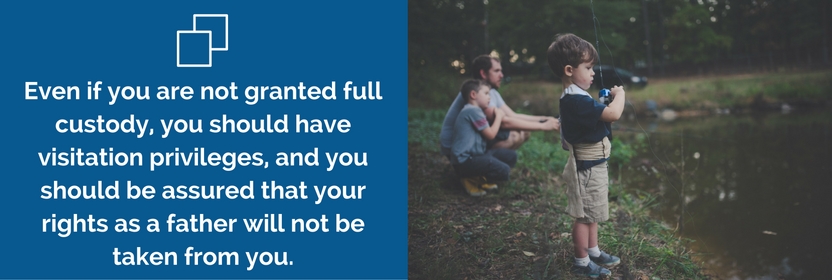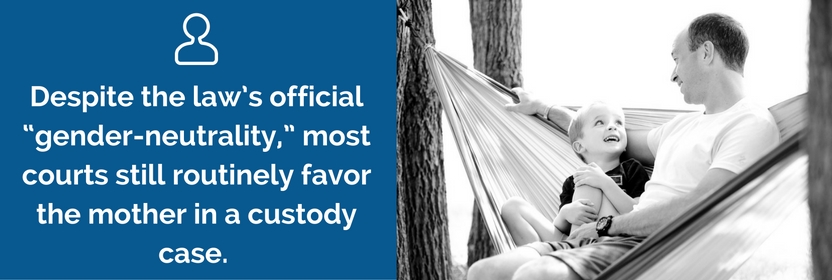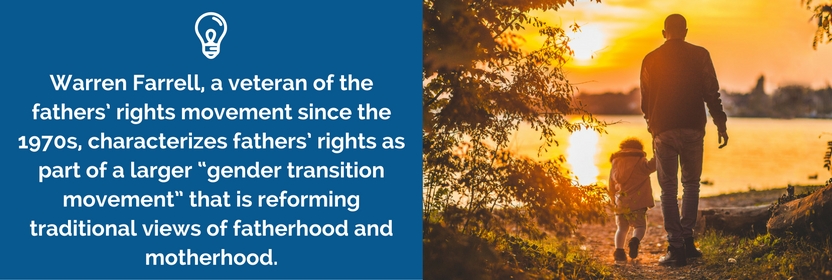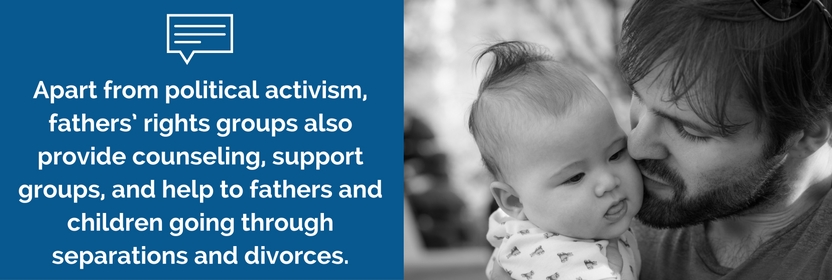If you are a father, whether you are married or divorced, you have rights. The courts are supposed to honor relationships between parents and their children, but many dads feel they are compelled to pay too much for child support while having too little parenting time. If you are the legal father of your child, it is imperative to insist on your parental rights during and after a divorce. As child visitation lawyers in Cerritos, we know that even if you are not granted full custody, you should have visitation privileges, and you should be assured that your rights as a father will not be taken from you.
The “fathers’ rights” movement emerged originally in the 1960s. It is essentially a loosely-organized group of activists who deal with family law issues such as child custody and child support that impact fathers and their children. It’s not exclusively male – many of the supporters of fathers’ rights are the second wives of divorced fathers. Fathers’ rights activists and supporters are often people who had scant interest in law or politics prior to being divorced, people who feel the family courts have treated them unjustly.
Why Has The Fathers’ Rights Movement Grown?
Let’s be frank. Despite the law’s official “gender-neutrality,” most courts still routinely favor the mother in a custody case. In the late 20th and early 21st centuries, the growth and expansion of the internet has allowed for wider discussion of fathers’ rights issues, expanded publicity, and increasing activism about the issues of interest to fathers’ rights activists. High divorce rates and societal changes in the expectations we have of parents have contributed to the movement’s growth.
More specifically, the fathers’ rights movement works and advocates for strong relationships between fathers and their children subsequent to divorce. The activists focus almost exclusively on the concerns of divorced or divorcing fathers. Organized fathers’ rights groups tend to form and dissolve quickly, often breaking up over disagreements about the movement’s philosophy and tactics.
The few fathers’ rights groups that have operated for decades – such as Families Need Fathers (active in the United Kingdom since 1974) and the Lone Fathers Association of Australia (active in that nation since 1972) – survive primarily on the efforts of key, dedicated individuals. It’s not uncommon for divorcing fathers to become temporary fathers’ rights activists during a divorce and then to lose interest after their personal parenting disputes have been resolved.
Is “fathers’ Rights” A Conservative Or Liberal Movement?
Fathers’ rights activists tend to be independently-minded, cannot be characterized as “conservative” or “liberal,” and use a variety of methods and strategies to achieve their goals. In fact, the movement has both conservative and liberal factions, so while activists agree about discrimination against fathers, they disagree about why that discrimination exists and how it can be stopped.
Some sociologists view the fathers’ rights movement as a strand of a broader “men’s movement” that includes everything from the Christian “Promise Keepers” group to the online “MGTOW” (“men going their own way”) movement. Warren Farrell, a veteran of the fathers’ rights movement since the 1970s, characterizes fathers’ rights as part of a larger “gender transition movement” that is reforming traditional views of fatherhood and motherhood.
Farrell also says that the fathers’ rights movement has been good for kids by pushing for more kids to be raised equally by both parents, thus providing more academic, psychological, social, and health benefits for children. All of the research – for decades – has confirmed that children raised by two parents are less at risk for criminal behavior and addiction. Fathers and mothers each make a unique contribution to a child’s development. In fact, Farrell believes the fathers’ rights movement is more genuinely a children’s rights movement with fathers acting as activists and advocates for children. All factions of the fathers’ rights movement makes these claims:
- Fathers are discriminated against because of gender bias in family law and the personal bias of judges.
- Child custody and child support rulings frequently represent a denial of equal rights.
- The influence of money has corrupted family law.
How Do Father’s Rights Groups Advance Their Agenda?
The political efforts of the fathers’ rights movement have primarily consisted of lobbying and campaigning for formal legal rights for fathers, and sometimes for children, and to work for family law reforms in the areas of child custody, support and maintenance, domestic violence, and the family court system itself. Apart from political activism, fathers’ rights groups also provide counseling, support groups, and help to fathers and children going through separations and divorces.
Divorce is not easy for anyone. If you are a father who is divorcing or anticipating a divorce, you may feel humiliated, belittled, angry, and filled with despair all at the same time. It can be a whirlwind of emotions. Fathers who are either already divorced or going through a divorce also have real concerns about burdensome payments for child-support and visitation privileges that very limited. Despite fathers facing a better legal situation now than they did in prior to the 70’s, truly equitable legal fairness is still something that we hope to see in the future.
For now, however, it is absolutely imperative to have experienced legal representation in a divorce or a child custody dispute, especially if a father genuinely believes that he is more capable of being the better custodial parent. In Southern California, fathers who are divorcing or anticipating a divorce should discuss their circumstances with an experienced Long Beach family law attorney.
If you are not listed on the birth certificate as the father, legal paternity can be determined with an easy DNA test that is typically conducted with a swab of the cheek from the child and yourself. If the mother and you were not married at the time the birth certificate was created, it is very important that you establish your parental rights legally. If you are divorcing, if you are fighting for the custody of your child or children, or if you need to establish legal paternity in the state of California, a Long Beach family law attorney can help. Fathers who seek to protect their rights as parents don’t need to go it alone.
While the fathers’ rights movement dates back to the 1960s, there is no corresponding “mothers’ rights” movement. Although the National Organization for Women (NOW) adopted a resolution opposing the fathers’ rights movement in 1996, there simply hasn’t been much interest in forming a counter-movement. Freelance writer Trish Wilson, who has written extensively about the fathers’ rights movement, says, “Feminist groups have not taken much interest in divorce and custody and how both affect women.”


 Call Us Now
Call Us Now Email Us Now
Email Us Now






